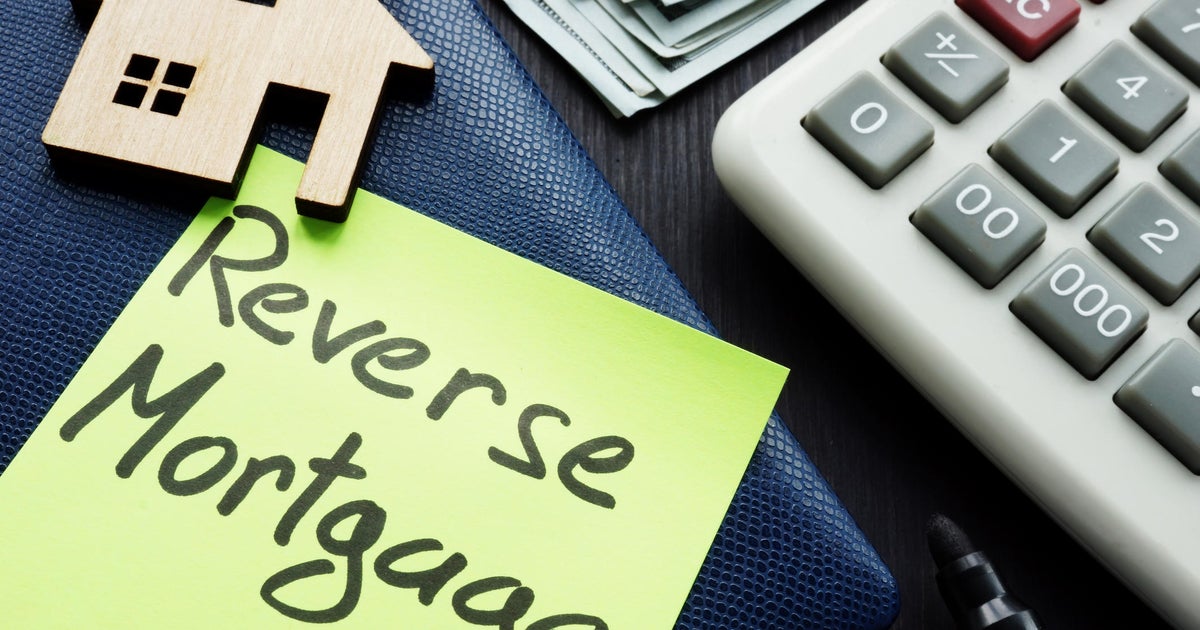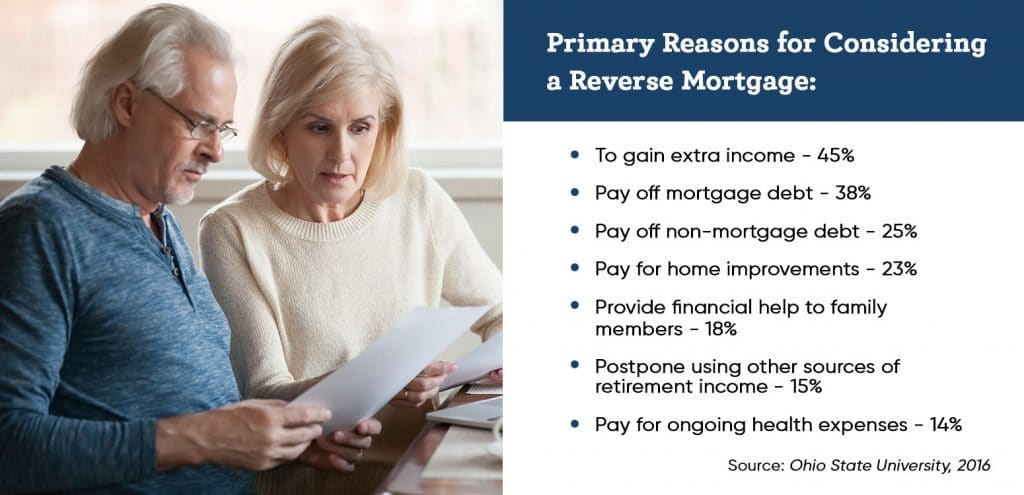Unlock Financial Flexibility: Your Overview to Acquiring a Reverse Home Mortgage
Comprehending the complexities of reverse home mortgages is necessary for property owners aged 62 and older seeking monetary flexibility. This unique economic tool enables elders to take advantage of their home equity, changing it into obtainable money for numerous requirements, from health care to way of living improvements. Browsing the eligibility benefits, expenses, and standards can be intricate. As you consider this option, it is crucial to realize not only just how it works but additionally the implications it might have on your economic future. What are the key aspects you should evaluate prior to making such an impactful decision?
What Is a Reverse Home Loan?

The essential charm of a reverse home mortgage hinges on its possible to improve financial flexibility throughout retirement. Home owners can utilize the funds for numerous functions, including medical costs, home enhancements, or daily living prices, therefore giving a safeguard throughout a critical point of life.
It is important to understand that while a reverse home loan enables increased cash money circulation, it additionally decreases the equity in the home in time. As interest accumulates on the superior finance equilibrium, it is essential for possible borrowers to carefully consider their long-term monetary strategies. Consulting with a monetary expert or a reverse home mortgage specialist can supply beneficial understandings into whether this option straightens with an individual's monetary goals and situations.
Qualification Needs
Comprehending the qualification demands for a reverse home mortgage is vital for homeowners considering this economic choice. To qualify, candidates need to be at the very least 62 years of ages, as this age criterion allows elders to accessibility home equity without month-to-month home loan payments. Furthermore, the house owner has to occupy the house as their key dwelling, which can include single-family homes, certain condominiums, and manufactured homes satisfying details standards.
Equity in the home is another vital demand; home owners typically need to have a significant quantity of equity, which can be established with an evaluation. The amount of equity offered will directly influence the reverse mortgage amount. Candidates have to demonstrate the ability to keep the home, consisting of covering home tax obligations, property owners insurance policy, and upkeep costs, making sure the residential or commercial property stays in great condition.
Additionally, potential customers need to go through an economic assessment to examine their revenue, credit rating, and general economic circumstance. This analysis helps lenders figure out the candidate's ability to fulfill recurring obligations associated to the home. Satisfying these requirements is vital for securing a reverse home loan and making sure a smooth economic shift.
Advantages of Reverse Home Mortgages
Many advantages make reverse mortgages an appealing alternative for senior citizens seeking to improve their economic adaptability. purchase reverse mortgage. One of the main benefits is the ability to convert home equity right into cash money without the requirement for regular monthly home mortgage settlements. This function website here allows elders to access funds for various needs, such as clinical expenditures, home improvements, or daily living expenses, therefore alleviating financial anxiety
Furthermore, reverse home loans give a safeguard; elders can continue to stay in their homes for as lengthy as they meet the finance demands, fostering security during retired life. The proceeds from a reverse mortgage can likewise be used to postpone Social Safety benefits, potentially leading to higher payments later.
Additionally, reverse home loans are non-recourse fundings, indicating that borrowers will certainly never owe more than the home's worth at the time of sale, safeguarding them and their heirs from monetary liability. The funds gotten from a reverse mortgage are normally tax-free, adding an additional layer of monetary alleviation. Generally, these benefits setting reverse mortgages as a sensible option for seniors looking for to improve their economic circumstance while maintaining their valued home environment.

Fees and costs Entailed
When taking into consideration a reverse home loan, it's important to be aware of the various prices and fees that can affect the total financial picture. Understanding these costs is crucial for making a notified decision regarding whether this financial item is appropriate for you.
One of the primary costs related to a reverse home mortgage is the source fee, which can differ by lending institution yet usually varies from 0.5% to 2% of the home's assessed value. Additionally, property owners must expect Learn More Here closing costs, which may include title insurance coverage, evaluation charges, and credit report costs, typically totaling up to numerous thousand bucks.
One more considerable cost is mortgage insurance premiums (MIP), which shield the lending institution versus losses. This charge is typically 2% of the home's value at closing, with a recurring yearly premium of 0.5% of the remaining car loan balance.
Last but not least, it is essential to take into consideration continuous expenses, such as real estate tax, house owner's insurance, and upkeep, as the consumer stays accountable for these expenses. By carefully reviewing these fees and prices, home owners can much better examine the financial implications of seeking a reverse home loan.
Steps to Start
Getting going with a reverse mortgage involves a number of essential actions that can assist streamline the process and guarantee you make informed choices. Examine your monetary circumstance and figure out if a reverse home loan aligns with your long-lasting objectives. This includes evaluating your home equity, present financial debts, and the requirement for added earnings.
Next, study various lending institutions and their offerings. Search for reliable establishments with positive testimonials, transparent cost frameworks, and competitive rates of try this site interest. It's vital to contrast terms to locate the most effective suitable for your requirements.
After selecting a lending institution, you'll need to complete a comprehensive application process, which commonly requires paperwork of earnings, properties, and home details. Participate in a counseling session with a HUD-approved counselor, who will supply understandings right into the effects and duties of a reverse home mortgage.
Verdict
Finally, reverse home mortgages offer a sensible alternative for elders looking for to boost their economic security throughout retired life. By transforming home equity into easily accessible funds, homeowners aged 62 and older can resolve numerous economic demands without the stress of regular monthly payments. Comprehending the complexities of eligibility, benefits, and associated costs is crucial for making educated choices. Cautious consideration and planning can lead to better top quality of life, making sure that retirement years are both safe and secure and meeting.
Comprehending the ins and outs of reverse mortgages is important for home owners aged 62 and older looking for financial liberty.A reverse mortgage is an economic item made mainly for homeowners aged 62 and older, permitting them to convert a portion of their home equity right into money - purchase reverse mortgage. Consulting with a reverse home mortgage or a financial consultant professional can provide important understandings right into whether this option aligns with an individual's economic objectives and circumstances
Moreover, reverse home mortgages are non-recourse lendings, indicating that consumers will certainly never owe more than the home's value at the time of sale, securing them and their successors from economic responsibility. Overall, these benefits position reverse home loans as a functional option for elders looking for to boost their economic situation while maintaining their cherished home environment.